Read Time: 7 Minutes Subscribe & Share
Extra Credit
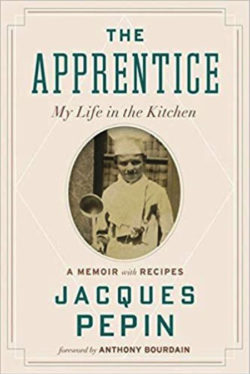 I have been reading personal accounts of restaurant professionals this summer. Two summers ago, I fell in love with two very different memoirs: Jacques Pepin’s
I have been reading personal accounts of restaurant professionals this summer. Two summers ago, I fell in love with two very different memoirs: Jacques Pepin’s 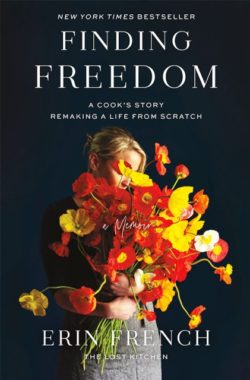 The Apprentice and Finding Freedom by Erin French. Jacques Pepin, who is in his 80s and still cooks and paints, is an excellent writer and recounts his life in a most entertaining style. Erin French’s searing account – aided by a co-writer – of her childhood, motherhood and brutal marriage, coupled with losing custody of her child and her original restaurant was as unbearable as it was compelling to read. But read to the end, there is indeed a hard-earned light at the end of the tunnel.
The Apprentice and Finding Freedom by Erin French. Jacques Pepin, who is in his 80s and still cooks and paints, is an excellent writer and recounts his life in a most entertaining style. Erin French’s searing account – aided by a co-writer – of her childhood, motherhood and brutal marriage, coupled with losing custody of her child and her original restaurant was as unbearable as it was compelling to read. But read to the end, there is indeed a hard-earned light at the end of the tunnel.
Oddly, I had refused to read Kitchen Confidential in its first wave of popularity. I had been deterred by watching a few videos of Anthony Bourdain’s TV series about his plunges into unknown (to him) cuisines and felt annoyed at the repetitious utterings about foods that were “the best things that he had put in his mouth” – something that Stanley Tucci has unfortunately copied. Other than watching speedy clips of a (fill-in-the-blank) countryside, food markets and brief cheffy interviews, I had no real idea about the dish or its history. But after struggling to put an end to my reading of “Your Table Is Ready” by Michael Cecchi-Azzolina, I decided I really did need a point of reference. His book, after all, was publicized as the front-of-the-house version of Kitchen Confidential, and is indeed filled with prurient gossip. Interesting to note that, my current reading choices were written by a restaurateur and a chef, both immigrants who landed in New York, the home base for these two native born authors in the same fields.
Better Late Than Never
I found Kitchen Confidential to be beautifully written and revelatory rather than merely sensational. Anthony Bourdain, whose reputation benefited from his freewheeling profanity and addictions to drugs, alcohol and cigarettes, actually was quite introverted and perhaps a bit old fashioned underneath the much publicized exterior. He was married to his first wife, whom he followed willy nilly from high school to college, for 20 years. She divorced him as he pursued his post-blockbuster book media fame. She has steadfastly refused any interview or social media interaction and has never penned her own memoir.
I made several surprising discoveries after the publication of this book: one was the deep friendship with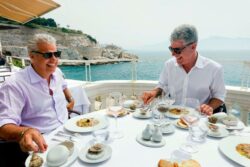 Eric Ripert, the executive chef of Le Bernardin (an almost cathedral like restaurant with almost no distance between pews.) He features seafood at a very high and tightly orchestrated level, but not particularly exuberant in presentation. The second was his profound admiration for Pino Luongo, an Italian restaurateur, who remains fearless in opening restaurants and has a meticulous eye for quality in service, ambiance, and food. He thought that Fergus Henderson of St John in London had created the restaurant of his dreams. Bourdain adored Henderson’s roasted bone marrow with a parsley salad. Reading through some of his later writings, I was intrigued to discover how much credit he gave to Ina Garten while disparaging Alice Waters. He wrote that Ina Garten delivered really good recipes to a home cook while Alice Waters was, at the very least, “tone deaf”.
Eric Ripert, the executive chef of Le Bernardin (an almost cathedral like restaurant with almost no distance between pews.) He features seafood at a very high and tightly orchestrated level, but not particularly exuberant in presentation. The second was his profound admiration for Pino Luongo, an Italian restaurateur, who remains fearless in opening restaurants and has a meticulous eye for quality in service, ambiance, and food. He thought that Fergus Henderson of St John in London had created the restaurant of his dreams. Bourdain adored Henderson’s roasted bone marrow with a parsley salad. Reading through some of his later writings, I was intrigued to discover how much credit he gave to Ina Garten while disparaging Alice Waters. He wrote that Ina Garten delivered really good recipes to a home cook while Alice Waters was, at the very least, “tone deaf”.
Veni. Vidi, Vici
So I think it’s worth exploring the memoirs of these two men whom Bourdain esteemed to such a high degree and who remain restaurant and food media survivors. Pino Luongo has written a few cookbooks. Two I particularly love, A Tuscan In The Kitchen and its sequel, Simply Tuscan have some wonderful poetry and prose in addition to some dishes I have enjoyed cooking. As an Italian, he, like my son in law, believes in procedures and not recipes! He felt quite wounded that this book was not well received by food critics. But he is best known for his restaurants – Coco Pazzo (my husband and I happened to eat in his Chicago and Manhatten outposts, and they both delivered in food, service and ambiance) Sapore di Mare, Centolire and Le Madri, – for which he hired Italian women who were noted for their home cooking.
As an actor, Luongo understands that dining in a restaurant is similar to being in a theater production. Everyone, including the diner, has a part to play. He loves his explosive temper and he is justly proud that he arrived in the US with just a few dollars and no English, yet worked his way to building a notable restaurant empire. If you have read the Kitchen Confidential version of their relationship, it’s amusing to note that Pino saw Anthony as a good chef who revealed himself to be a terrible expediter at Coco Pazzo Teatro. Luongo could not, out of his affection and admiration for him, bring himself to fire Anthony directly, and had his manager do the deed. He details the loss of his restaurants and Tuscan retail venture and his efforts to recover through the prism of 9/11 in the final chapters. One of my favorite moments, though, is how Pino addressed a rude and hostile man who had loudly ignored his maitre d’ and demanded a table at his fully booked restaurant with the loathed phrase ” you don’t know who I am.”
“My temper went from zero to sixty in no time. I climbed up on a chair, told all the customers in the surrounding area to be quiet , then turned to the guy and said “OK, go ahead, tell us all who you are.”
Franco-American Relations
Like Pino Luongo, Eric has a co writer but ends 32 Yolks at the point of his departure to the US. Perhaps he is saving his experiences at Le Bernardin for a later book. That he has been able to maintain the stars and accolades at this restaurant is certainly remarkable. It is the stories of his youth, though, in the kitchens of fabled Parisian restaurants that makes it an absorbing read. While Anthony Bourdain’s parents were separated before his father died at age 57, his family life could not have been as disruptive or unhappy as that of Eric Ripert. Eric’s mother forged a successful career as a clothing boutique owner and divorced his father, who routinely had affairs with other women. Both remarried and Eric remained with his mother but still adored his times with his father.He was distraught at his death when he was eleven years old and still mourns the loss, His stepfather was both emotionally and physically abusive to him, so it is no wonder that he enrolled in a second tier culinary trade school during his adolescence.
One of my takeaways from 32 Yolks is Ripert’s treasured memory of wonderful meals with his extended family throughout a very rough childhood, They included camping trips with his mother and dreaded stepfather and those prepared by his aunts and grandmothers (one of whom was Italian). The memories of long meals with family and neighbors (and all the complexities of their relationships) sustained Ripert until he could escape to culinary school. His descriptions of life as a commis and cook in such sanctimonious restaurants as La Tour D’Argent and Jamin make Kitchen Confidential seem almost tame in comparison. He was shocked to find out from one of his punishing mentors that it used to be worse, as your superiors would beat you with iron skillets. Jean, one of his supervising cooks, remarked to the exhausted Eric, “It’s so much more relaxed now.”
so much more relaxed now.”
I understood better his cuisine at Le Bernardin after I read 32 Yolks – the title refers to the number of yolks required for his set up of hollandaise sauce when he worked and suffered at La Tour D’Argent. His training from the maniacally controlling Joel Robuchon is still with Eric Ripert and he is justifiably proud of what he learned from a mad genius. He reveres the precision and craft he gained from the dictatorial and harsh brigade system in France. In running his own kitchen at Le Bernardin,Ripert has broken with those traditions. But he still has nightmares over creating perfectly aligned spots of fresh, always fresh, sauce dots on plates.
Shop Items Mentioned in the Post
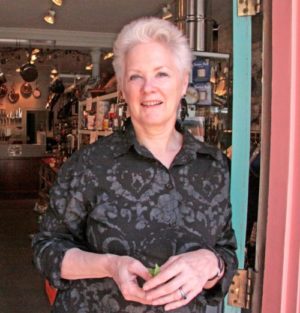
Kitchen Detail shares under the radar recipes, explores the art of cooking, the stories behind food, and the tools that bring it all together, while uncovering the social, political, and environmental truths that shape our culinary world.
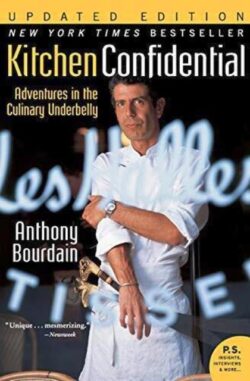
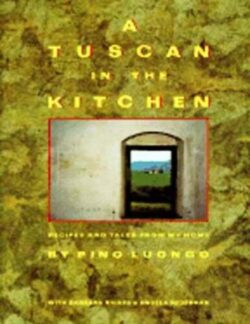
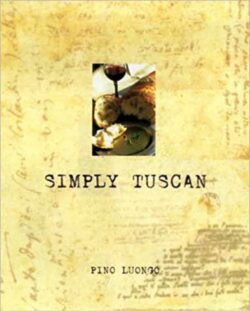
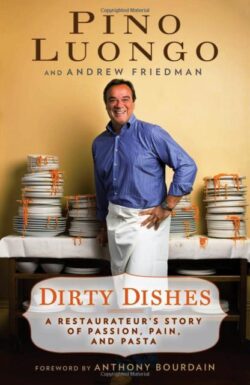
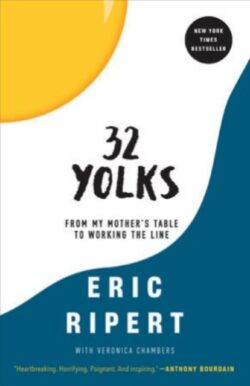
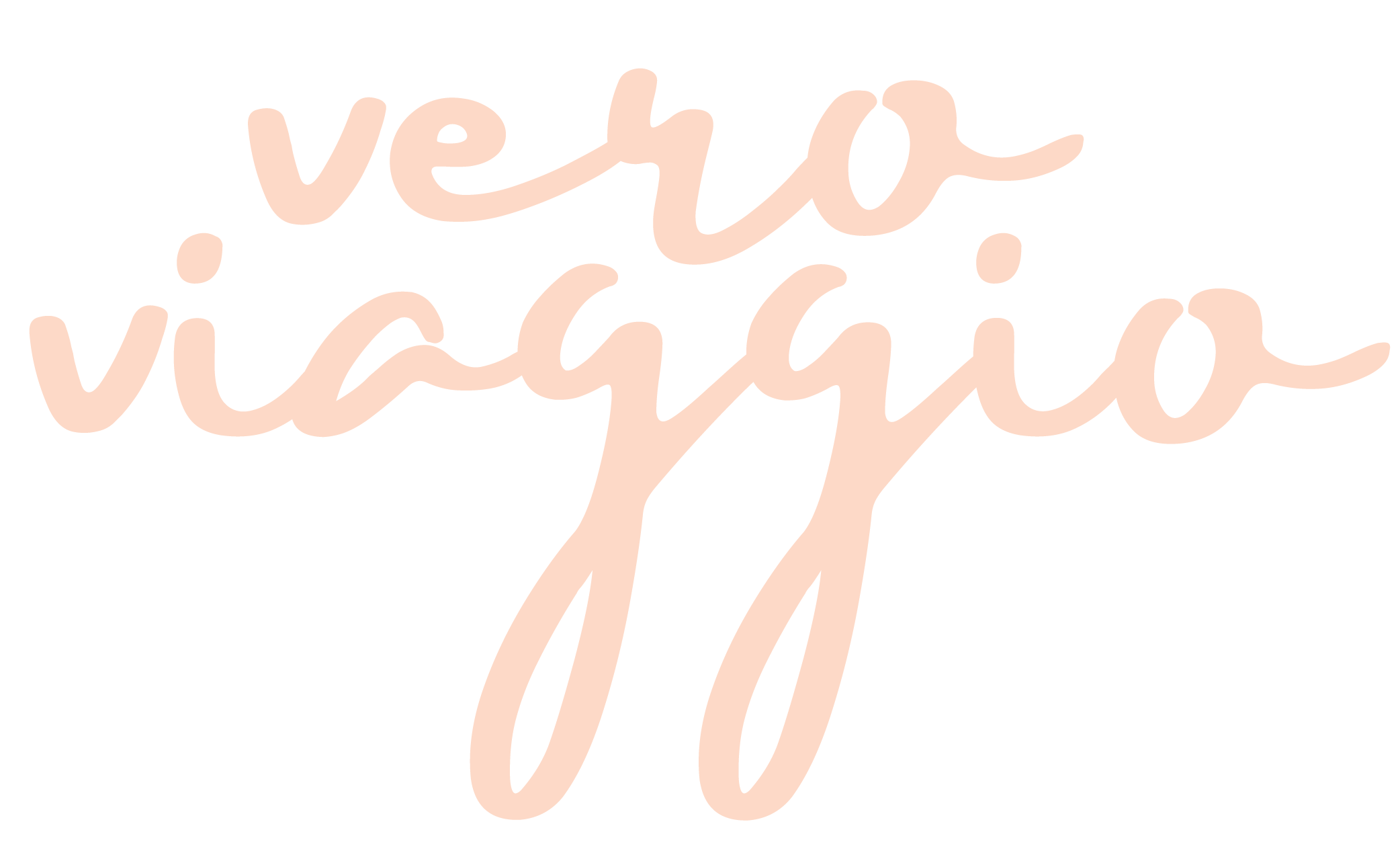



I can also recommend “Yes, Chef”, Marcus Samuelsson’s memoir about his early years, his being orphaned along with his sister at a young age after their mother’s death, and adoption by a Swedish couple. And then becoming a chef. And of course, any of Laurie Colwin’s books.
Hello Francine,
I loved “Yes,Chef” too. And agree that Laurie Collwin’s books are classics like those of M. F. K.Fisher.
Yes!!! M. F. K. Fisher – how could I forget her!!!